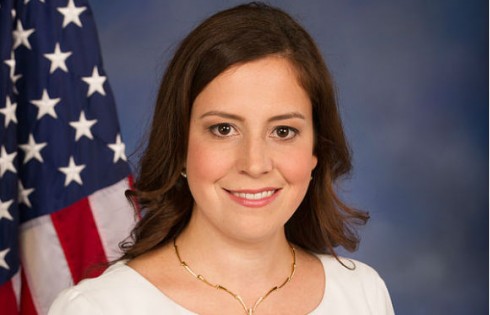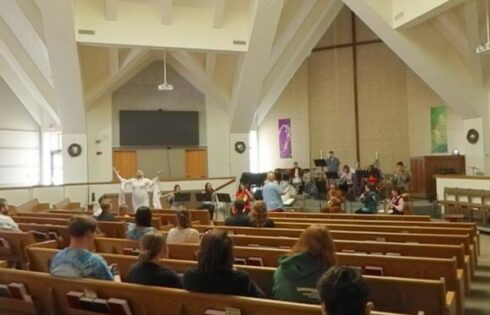
Separate complaint filed against student for using term ‘sandwich artisan,’ University of Washington public records show
In November of last year, University of Washington Provost Mark Richards sent a campuswide email to rally students and faculty to support his mission.
“With ‘access and excellence’ as our mantra,” the email read, “we are working hard to more effectively link our capital investments to our academic mission and priorities.”
However, the email, titled “Making Core Investments to Advance Our Mission,” inspired one student at the public research university in Seattle to file a bias complaint against Richards (pictured) for using the term “mantra.”
“Many people in the Buddhist and Hindu community hold this term ‘mantra’ as a highly spiritual and religious experience, not to be used in the way Mark Richards did with nonchalance,” the student complained.
 The student categorized use of the term as a violation of the school’s rules on “Ethnicity,” “General Climate,” “National Origin,” and “Religion/Creed” in the bias complaint, suggesting the school address the issue with Richards and the faculty and staff at large.
The student categorized use of the term as a violation of the school’s rules on “Ethnicity,” “General Climate,” “National Origin,” and “Religion/Creed” in the bias complaint, suggesting the school address the issue with Richards and the faculty and staff at large.
It did. According to follow-up documents, a diversity staffer advised the provost’s office on the “concern about use of wording.”
Richards did not immediately respond to a request by The College Fix to comment.
This complaint was one of more than 100 filed with the University of Washington Bias Reporting system since January 1, 2019. The reports were obtained by The College Fix through a public records request. The documents provided have some personal identifying information redacted.
Among the reports filed, another student was reported for using a popular fast food slogan, and a black professor was flagged for allegedly used the word “cracker.”
The reports were obtained as The College Fix continues to investigate the types of complaints that are lodged through bias response teams at college campuses across the nation. About two dozen universities have been included in the investigation so far since it launched in 2019.
According to the school’s website, students and faculty are encouraged to file reports if they “encounter or suspect incidents of bias.” The Bias Incident Advisory Committee which reviews the complaints includes a sergeant from the UW Police Department as a member.
This practice, which is also found at other universities, has led some critics to compare bias response teams in general to literal “speech police.”
“The UW values and honors diverse experiences and perspectives, and strives to create welcoming and respectful learning environments and promote access and opportunity,” said university spokesman Victor Balta in an email to The College Fix.
“At the same time, our institutional commitment to freedom of expression encourages members of our University community to hold and express views that are sometimes unpopular or troubling to others,” said Balta, adding, “We do not believe that the ability to report experiences of harassment and discrimination discourages free speech.”
Balta noted that while the reporting tool allows for anonymous reporting, “about 25 percent or fewer of the reports that have been submitted were anonymous.”
The UW bias website notes the coronavirus may have intensified incidents of bias, even with no students on campus.
“The far-reaching impacts of the COVID-19 pandemic have contributed to additional stressors and incidents of bias,” the website reads, emphasizing the need to “mitigate possible stigmatization related to coronavirus.”
In a pre-COVID incident that took place in May 2019, a student filed a complaint against another student for using the term “sandwich artisan” in a fundraising email.
The email, meant to convince business students of the value of the Foster School of Business Career Services Office, urged upcoming seniors to donate to support the office.
“Ultimately, Career Services helped me land both an internship at Boeing, and an off-cycle analyst role at a local boutique investment bank,” the student wrote, adding, “Without the resources that Foster offered, I might just be another sandwich artisan working at a local deli.”
The term “sandwich artist” has been used by the fast food franchise Subway to describe their employees.
“This statement is extremely offensive to many communities,” reported a student, whose name was redacted by the university in the documents provided to The College Fix.
“It supports elitist/classist mentalities, is discriminatory and hurtful, and unnecessarily disparages of [sic] an honest line of work,” the student continued.
“Many students and their parents work minimum wage jobs to put themselves/their children through college, and support their families. This is especially common of immigrant families. I was extremely offended, and so were many others who are aware of this incident. It makes the Foster school seem elitist and discriminatory,” the student said, suggesting the school send out an apology and impose some sort of bias training on its employees.
In another incident, a white English professor was discussing the fact that white people were not only held as slaves in the 19th century, they were often preferred to black slaves.
“Could you imagine? If you were black at that time, you could not even get a job as a slave,” the professor allegedly said.
Calling him “ignorant” and “racist,” one student filed a complaint against the professor for his “absolutely disgusting” comment. The student said the remark “explicitly showcases the violence that old white professors impose on students.”
“Such ‘jokes’ are tone-deaf and extremely racist,” the student wrote, saying the professor “does not know how to deal with diverse students.”
In a follow-up message to the student, a diversity counselor gave the student the opportunity to contact the professor, to give him the chance to “ask questions, reflect, and understand the impact this incident had on you and other students.”
Later, the counselor reported back to the student that she had spoken to the professor and that while he had been “quite dismayed” at the complaint, he “listened attentively” while she talked. During the conversation, the professor said he was “dismayed that his words would be understood in a way directly contradictory to what the class was intended to do.”
He said the context of the comment was “intended to convey the deeply racist nature of slave owning societies and his own comment was meant to highlight the bitter irony of the situation.”
“I did point out that humor and irony about such complex issues can backfire,” the counselor told him.
In April 2019, a student reported a black professor for “verbal assault” after the professor twice used the term “cracker” to refer to white people.
“I do not expect any action to get taken, but I’ve done my part of documenting this lazy, consistently late instructor who one day is going to go so overboard people will look back and see the pattern,” the student wrote about the professor.
But when a diversity counselor reached out to the professor, he told a very different story.
“After reaching out to faculty, it became clear that this incident is related to a grading dispute between instructor and student,” the counselor wrote. “Reported language according to instructor was not directed at a student or anyone in class, was made in reference to historical discussion of lynchings in the US south.”
Dozens of complaints flooded into the bias reporting system in May 2019 when the UW’s College Republicans hosted an “Affirmative Action Bake Sale,” during which they charged people of different ethnicities different prices for baked goods. One student complained the flyers on campus advertising the event were a “written assault” on students.
MORE: University of Washington law students demand nebulous ‘racial justice’
IMAGE: MILKXT2 / Shutterstock
Like The College Fix on Facebook / Follow us on Twitter






Please join the conversation about our stories on Facebook, Twitter, Instagram, Reddit, MeWe, Rumble, Gab, Minds and Gettr.